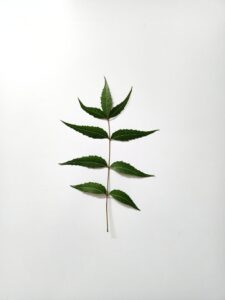
The Struggle is Real: Understanding Postpartum Hair Loss
Imagine this: you’ve just brought a new life into the world, and as you’re adjusting to motherhood, you notice clumps of hair falling out. It’s postpartum hair loss, a condition many new moms face, but it’s rarely talked about. So, let’s shed light on this natural occurrence and reassure you that you’re not alone.
Defining Postpartum Telogen Effluvium
Postpartum hair loss, scientifically known as telogen effluvium, happens when hair follicles enter the resting phase too soon. This can lead to noticeable hair shedding, usually peaking around three months after giving birth. It’s a temporary phase, and understanding this can be the first step towards managing it effectively.
Why It’s More Than Just Hair: The Emotional Toll
For many, hair is a significant part of identity. When it starts to fall out, it can feel like you’re losing a piece of yourself. It’s not just about vanity; it’s about the emotional upheaval that comes with the physical changes. Recognizing the emotional impact is crucial in seeking the right support and solutions.
Nature’s Way: A Dive Into Natural Hair Care Solutions
Nature offers a treasure trove of remedies that can nourish your hair from the inside out. These solutions are gentle, often more affordable, and can be just as effective as their chemical counterparts. Let’s explore how natural treatments can help restore your hair to its former glory.
From Kitchen to Hair Care: Remedies Within Reach
Did you know that your kitchen could hold the key to managing postpartum hair loss? Everyday items like eggs, avocados, and even the humble onion have properties that can help strengthen your hair and stimulate growth. Here’s how you can turn these ingredients into hair care superstars:
- Egg mask: Rich in protein and biotin, eggs can promote hair strength.
- Avocado treatment: The natural oils in avocados deeply moisturize the scalp.
- Onion juice: It might sound surprising, but onion juice has been shown to support hair regrowth.
- Coconut oil: A classic remedy, coconut oil reduces protein loss in hair.
- Aloe vera: Soothes the scalp and conditions the hair.
Vitamins and Minerals: The Unsung Heroes of Hair Regrowth
While topical treatments are great, what you put into your body is just as important. Certain vitamins and minerals play a pivotal role in hair health. Including these in your diet can create the right environment for your hair to thrive again.
- Vitamin A: Encourages healthy sebum production in the scalp.
- Vitamin E: Its antioxidant properties can combat oxidative stress.
- Zinc: A lack of zinc can lead to hair loss, so it’s vital to get enough.
- Iron: Iron deficiency is a common cause of hair loss, making it an essential mineral to include in your diet.
- Biotin: Part of the vitamin B family, it’s known for its role in hair health.
- Omega-3 fatty acids: Found in fish oil, they can enhance hair density.
Remember, the journey to regaining your hair is as much about nurturing your body as it is about treating your hair. Combining a balanced diet with natural hair treatments can create a powerful duo to combat postpartum hair loss. Stay tuned as we continue to explore more ways to support your hair and well-being during this special time in your life.
Changing the Tide: Sarah’s Journey with Natural Remedies
Meet Sarah, a new mom who noticed her hair thinning and shedding a few months after her baby’s arrival. Faced with postpartum hair loss, she felt a mix of confusion and concern. But Sarah’s story is one of transformation, as she turned to nature for answers and found a path to hair recovery that worked wonders for her.
The Initial Shed: Recognizing the Problem
It started with a few extra strands on her brush, but soon, Sarah was confronting handfuls of hair falling out in the shower. She knew this was beyond normal hair shedding. Acknowledging the issue was her first step toward finding a solution. She didn’t want to resort to harsh chemicals or expensive treatments; she was determined to find a gentle and natural way forward.
Research and Discovery: Finding a Natural Path
Sarah dove into research, learning about the nutrients her hair needed during this vulnerable time. She discovered a community of mothers online sharing their success stories with natural remedies. Inspired by their experiences, Sarah began experimenting with homemade concoctions, dietary changes, and gentle hair care practices that aligned with her desire for a natural approach.
Building a Natural Hair Care Routine
Through trial and error, Sarah crafted a hair care routine that was not only natural but also sustainable and easy to follow amidst the busy life of a new mom. She found joy in the simplicity of her routine, which became a cherished part of her self-care regimen.
Cleansing and Conditioning: Choosing the Right Products
When it came to cleansing and conditioning, Sarah was picky. She sought out products with natural ingredients, free from sulfates and parabens. She learned that ingredients like tea tree oil could soothe her scalp, while shea butter would keep her hair moisturized. She made sure to read labels and choose products that supported her hair’s health without compromising on her natural standards.
Gentle Styling: Protecting Hair Postpartum
Styling became a delicate dance for Sarah. She put away her heat tools and embraced her hair’s natural texture. She swapped tight ponytails for loose braids to avoid pulling on her delicate strands. On days when she wanted to feel extra put-together, she opted for soft headbands and clips that didn’t stress her scalp. Sarah’s gentle approach to styling allowed her hair the space it needed to regrow stronger and healthier.
As we follow Sarah’s journey, we see a story of empowerment. She took control of her postpartum hair loss by embracing natural treatments and adjusting her hair care routine. Her experience is a testament to the effectiveness of natural remedies and the importance of a nurturing approach to personal care during the postpartum period.
The Role of Diet and Supplements in Hair Health
What we eat significantly impacts our hair’s health. Sarah learned that a well-balanced diet rich in protein, vitamins, and minerals is essential for hair growth. She incorporated foods like spinach, which is high in iron, and salmon, packed with omega-3 fatty acids, into her meals. Supplements played a role too, as Sarah added a prenatal vitamin to her daily routine, ensuring she got all the necessary nutrients to support her hair and overall health.
- Protein-rich foods like nuts to strengthen hair strands.
- Iron from leafy greens to improve blood flow to the scalp.
- Vitamin C from citrus fruits to boost collagen production.
- Biotin supplements to enhance hair growth.
- Plenty of water to keep hair hydrated and healthy.
By focusing on nutrient-dense foods and the right supplements, Sarah not only saw improvements in her hair but also in her energy levels and skin health. It’s a holistic approach that yields benefits far beyond the scalp.
Community and Support: Learning from Others’ Experiences
One of the most comforting things for Sarah was realizing she wasn’t alone. By connecting with a community of other mothers going through the same struggle, she gained valuable insights and emotional support. Let’s see how reaching out can make a big difference.
Connecting with Other Mothers
Sarah found solace in online forums and local parenting groups where she could share her experiences and learn from others. These connections were more than just informative; they were a source of camaraderie. Tips on hair care routines, product recommendations, and words of encouragement flowed freely, helping Sarah feel part of a supportive tribe.
- Online parenting forums for sharing stories and advice.
- Social media groups focused on postpartum well-being.
- Local meetups for new moms to connect in person.
- Playdates that double as support group sessions.
It’s this sense of community that can turn the challenging postpartum period into a time of growth and shared learning. Sarah’s network of fellow moms became a pillar of strength as she navigated her hair loss journey.
Emotional Support: Beyond Hair Loss
While hair loss was the initial concern, Sarah found that the emotional support she received from her community was invaluable for her overall postpartum experience. Discussions about hair loss often led to conversations about other aspects of motherhood, from coping with sleep deprivation to managing stress. This emotional support was a lifeline during tough times.
- Sharing personal stories to foster deeper connections.
- Group therapy sessions with other new moms.
- One-on-one chats with friends who’ve been through similar experiences.
- Professional counseling for postpartum depression and anxiety.
Emotional well-being is crucial, and Sarah’s journey highlights the importance of seeking support not just for hair loss, but for the myriad challenges new mothers face.
Next Steps: Where to Go from Here?
As Sarah’s hair began to regrow, she realized that her journey was about more than just hair. It was about taking control of her health and finding balance in her new role as a mother. But what about those who need more than just community support and natural remedies?
Finding Professional Support
For some, professional help is necessary. Sarah was fortunate to find solutions that worked for her, but she always knew that dermatologists and trichologists were available if needed. These experts can offer tailored advice, treatments like minoxidil, or even hormone therapy if appropriate. It’s about finding the right help for your unique situation.
- Consultations with a dermatologist who specializes in hair loss.
- Visits to a trichologist for scalp analysis and treatment plans.
- Discussions with a nutritionist to optimize diet for hair health.
- Therapy sessions to address the emotional impact of hair loss.
Remember, seeking professional help is a sign of strength, not weakness. Sarah’s success with natural treatments is inspiring, but every journey is different, and it’s okay to ask for help when you need it.
Continuing the Journey: Long-term Hair Care
As hair begins to regrow, it’s tempting to return to old habits, but Sarah knew that maintaining her hair’s health was a long-term commitment. She continued to use natural products and eat a nutrient-rich diet. She also made sure to keep stress at bay, as it can be a sneaky culprit behind hair loss. Sarah’s story teaches us that long-term hair care is about consistency and loving attention to your body’s needs.

Key Takeaways: Article-at-a-Glance
- Postpartum hair loss, or telogen effluvium, is a common condition that can be managed with natural remedies and a nurturing approach.
- Natural hair care solutions include kitchen remedies like egg masks and avocado treatments, as well as maintaining a nutrient-rich diet.
- Embracing a gentle hair care routine and avoiding harsh styling helps protect hair during the regrowth phase.
- Building a support network can provide emotional relief and practical tips for dealing with postpartum hair loss.
- Long-term hair care requires a commitment to continued use of natural products, a healthy diet, and stress management.
Frequently Asked Questions (FAQ)
When is postpartum hair loss most likely to occur?
Postpartum hair loss typically begins a few months after childbirth. Most women notice increased shedding around the third month postpartum, with the condition peaking around the fourth or fifth month. It’s important to note that this varies from person to person, and hair usually starts to regain its normal fullness within six to twelve months.
What are some easy-to-find natural remedies for postpartum hair loss?
- Egg mask: A protein-rich treatment that strengthens hair.
- Avocado treatment: Nourishes the scalp with natural oils.
- Onion juice: Surprisingly effective in promoting hair growth.
- Coconut oil: Reduces protein loss and protects hair.
- Aloe vera: Soothes the scalp and conditions the hair.
- Essential oils like rosemary and peppermint: Stimulate the scalp when diluted and used properly.
Are there any specific vitamins that aid in the regrowth of postpartum hair loss?
Yes, certain vitamins and minerals are essential for hair regrowth. These include:
- Vitamin A: Promotes sebum production for a healthy scalp.
- Vitamin E: Protects hair from oxidative stress and damage.
- Zinc: Supports hair follicle health and can prevent hair loss.
- Iron: Essential for carrying oxygen to hair follicles, promoting growth.
- Biotin (Vitamin B7): Known for its role in hair growth and strength.
- Omega-3 fatty acids: Improve hair density and texture.

Supplementing with these nutrients, along with a balanced diet, can significantly help in managing postpartum hair loss and encouraging healthy hair regrowth.
What are some gentle hair-styling tips for new moms experiencing hair loss?
For new moms facing hair loss, the goal is to minimize stress on the scalp and fragile hair. Here are some gentle styling tips:
- Avoid tight hairstyles that pull on the roots, like high ponytails or tight braids.
- Use scrunchies or hair ties without metal clasps to prevent tangling and breakage.
- Limit the use of heat styling tools which can weaken hair; let your hair air-dry when possible.
- When brushing, use a wide-tooth comb or a soft-bristle brush to detangle gently.
- Experiment with headscarves or turbans for a stylish way to protect your hair.
- Consider a new haircut that embraces your hair’s natural texture and requires less styling.
These simple changes can make a significant difference in preserving your hair’s integrity and encouraging regrowth.
How can a supportive community help in dealing with postpartum hair loss?
A supportive community can be a lifeline during the challenging times of postpartum hair loss. Here’s how:
- Sharing experiences and tips can provide practical solutions and new ideas for managing hair loss.
- Emotional support from others who understand can be comforting and reduce feelings of isolation.
- Community members can offer recommendations for professional help and resources.
- Success stories from the community can inspire hope and provide motivation to try new treatments.
- Groups can be a safe space to discuss other postpartum challenges, contributing to overall well-being.
By leaning on a community, new moms can find strength and camaraderie, making the journey through postpartum hair loss less daunting.
In conclusion, postpartum hair loss, while common, can be an unexpected challenge in the journey of motherhood. However, as we’ve seen with Sarah’s success story, it’s a condition that can be managed with a thoughtful approach to natural remedies, gentle hair care, and the support of a caring community. By focusing on nourishment from both within and without, embracing soft styling techniques, and connecting with others for support and advice, new mothers can navigate this temporary phase with grace and confidence. Remember, this journey is not just about hair regrowth—it’s about self-care, resilience, and the beautiful bond of motherhood. So, take heart, be kind to yourself, and know that with time, your hair, like you, will grow stronger.
Frequently Asked Questions (FAQ)
Can postpartum hair loss be prevented?
While postpartum hair loss is a natural process due to hormonal changes and cannot be entirely prevented, managing stress, eating a balanced diet, and using gentle hair care practices can help minimize its impact and support healthier regrowth.
How long does postpartum hair loss last?
Most women will see their hair begin to return to its normal fullness within six to twelve months after childbirth. If hair loss persists beyond this time frame, it may be a good idea to consult a healthcare professional.
Can I still color my hair if I’m experiencing postpartum hair loss?
It’s generally recommended to avoid harsh chemical treatments during postpartum hair loss. If you choose to color your hair, consider using natural or gentle dye options and always perform a patch test first.
When should I see a doctor about my postpartum hair loss?
If you’re concerned about the amount of hair you’re losing, or if your hair doesn’t start to regain its normal fullness after a year, it’s a good idea to see a doctor. They can rule out other causes of hair loss and provide guidance on treatment options.


